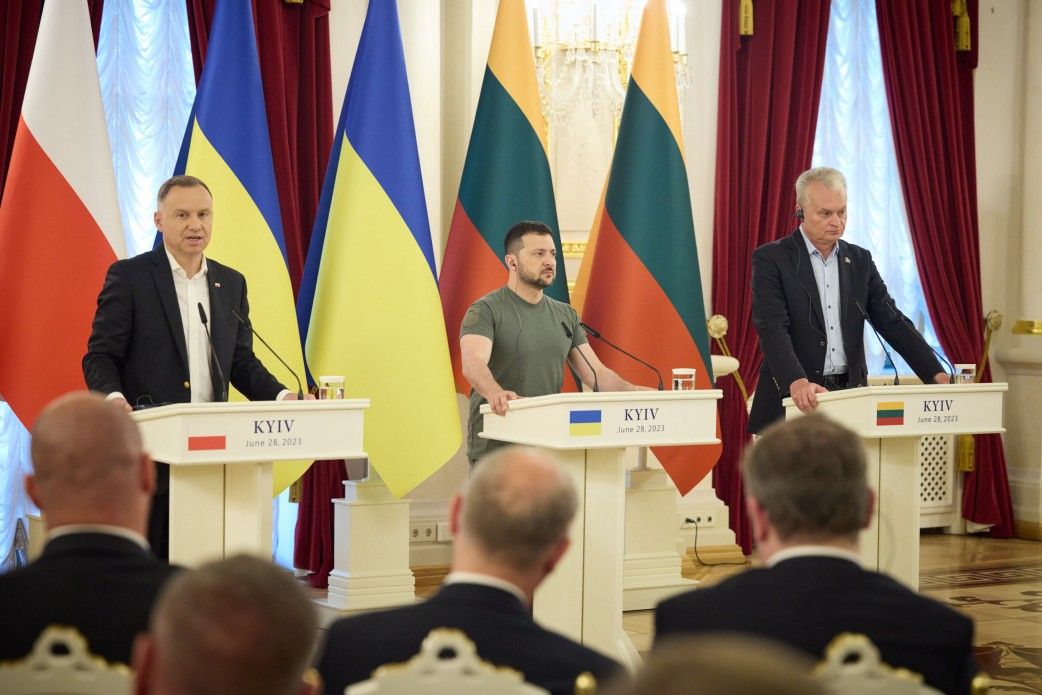Estonian PM: Security commitments 'blur' Ukraine NATO membership talks

Discussions on bilateral security commitments to Ukraine may "blur" the talks on the country's NATO membership, Estonian Prime Minister Kaja Kallas told the Financial Times on July 5.
Instead, Kallas called for "practical, concrete steps" for Ukraine on its path to Alliance membership.
NATO members remain divided on the issue of Ukraine's accession ahead of the July summit in Vilnius.
Some Allies, mainly in Central and Eastern Europe, call for a clear proposal to be presented to Kyiv at the meeting, even including a simplified accession process, while others prefer long-term security guarantees that would deter future Russian aggression, short of a clear invitation.
France indicated it is ready to provide such guarantees, comparing it to an "Israeli-style" security agreement. At a June 29 summit in Brussels, the EU leaders made a pledge to long-term security commitments to Ukraine.
These guarantees mainly translate to commitments to future weapons shipments, financial aid, and training programs.
According to Kallas, this is simply a continuation of what the Allies are already doing, and it does not give Ukraine any additional guarantees.
"The war will not be there when the deterrence is credible," the prime minister said.
Kallas said in the interview that some countries avoid certain steps due to fears of Russia's nuclear arsenal. Estonia's head of government called for the partners not to be intimidated by Moscow's terrorism threats.
Ukraine applied to join NATO in September 2022. While acknowledging the country cannot enter the Alliance before the end of the war, Ukrainian leadership has repeatedly called for a "clear signal" on the membership from the Allies during the upcoming summit.











